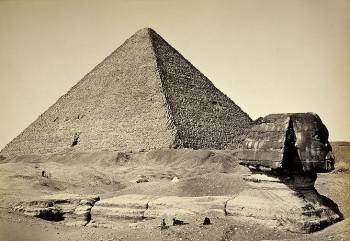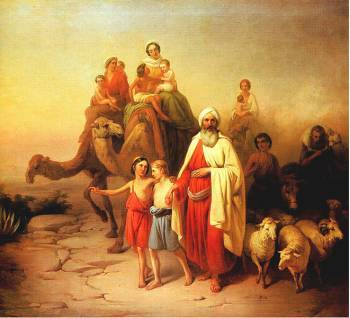Wisdom is the right use of knowledge. To know is not to be wise.
Many men know a great deal, and are all the greater fools for it.
There is no fool so great a fool as a knowing fool.
But to know how to use knowledge is to have wisdom. ~ Charles Spurgeon
|
Apple Tree, otherwise known as Food for Thought, is dedicated to topics and subject matters some may find controversial or out of the main stream. It is intended to provoke intelligent and objective discussion and debate. At the very least, it will certainly make you go hmmm. Like the rest of the material presented throughout this website, it is provided for both informational and entertainment purposes and does not necessarily represent the views or opinions of Watch Foodie Network nor any of our Sponsors. |
Philosophy 101
- Menu
Philosophy is the study of general and fundamental problems, such as those connected with existence, knowledge, values, reason, mind, and language. Philosophy is distinguished from other ways of addressing such problems by its critical, generally systematic approach and its reliance on rational argument.
The word "philosophy" comes from the Greek word philosophia, which literally means "love of wisdom".
All cultures—be they prehistoric, medieval, or modern; Eastern, Western, religious or secular—have had their own unique schools of philosophy, arrived at through both inheritance and through independent discovery. Such theories have grown from different premises and approaches, examples of which include (but are not limited to) rationalism (theories arrived at through logic), empiricism (theories arrived at through observation), and even through leaps of faith, hope and inheritance (such as the supernaturalist philosophies and religions).
Main Branches of Philosophy:
The following branches are the main areas of study:
Metaphysis: Metaphysics is the study of the nature of reality, including the relationship between mind and body, substance and accident, events and causation. Traditional branches are cosmology and ontology.
Epistemology: Epistemology is concerned with the nature and scope of knowledge, and whether knowledge is possible. Among its central concerns has been the challenge posed by skepticism and the relationships between truth, belief, and justification.
Ethics: Ethics, or "moral philosophy", is concerned primarily with the question of the best way to live, and secondarily, concerning the question of whether this question can be answered. The main branches of ethics are meta-ethics, normative ethics, and applied ethics. Meta-ethics concerns the nature of ethical thought, such as the origins of the words good and bad, and origins of other comparative words of various ethical systems, whether there are absolute ethical truths, and how such truths could be known. Normative ethics are more concerned with the questions of how one ought to act, and what the right course of action is. This is where most ethical theories are generated. Lastly, applied ethics go beyond theory and step into real world ethical practice, such as questions of whether or not abortion is correct. Ethics is also associated with the idea of morality, and the two are often interchangeable.
Logic: Logic is the study of valid argument forms. Beginning in the late 19th century, mathematicians such as Gottlob Frege focused on a mathematical treatment of logic, and today the subject of logic has two broad divisions: mathematical logic (formal symbolic logic) and what is now called philosophical logic.
Specialized Branches of Philosophy:
Philosophy has expanded to include specialized branches of thought:
Philosophy of Language: Philosophy of language explores the nature, the origins, and the use of language.
Philosophy of Law: More commonly called jurisprudence, it explores the varying theories explaining the nature and the interpretations of the law in society.
Philosophy of Mind: Philosophy of mind explores the nature of the mind, and its relationship to the body, and is typified by disputes between dualism and materialism. In recent years there has been increasing similarity between this branch of philosophy and cognitive science.
Philosophy of Religion: Philosophy of religion is a branch of philosophy concerned with questions regarding religion, including the nature and existence of God, the examination of religious experience, analysis of religious language and texts, and the relationship of religion and science. The philosophy of religion differs from religious philosophy in that it seeks to discuss questions regarding the nature of religion as a whole, rather than examining the problems brought forth by a particular belief system. It is designed such that it can be carried out dispassionately by those who identify as believers or non-believers.
Philosophy of Science: Philosophy of science is concerned with the assumptions, foundations, methods and implications of science. It is also concerned with the use and merit of science and sometimes overlaps metaphysics and epistemology by exploring whether scientific results are actually a study of truth. Some philosophers of science also use contemporary results in science to reach conclusions about philosophy. Philosophy of science has historically been met with mixed response from the scientific community. Though scientists often contribute to the field, many prominent scientists have felt that the practical effect on their work is limited.
Political Philosophy: Political philosophy is the study of government and the relationship of individuals (or families and clans) to communities including the state. It includes questions about justice, law, property, and the rights and obligations of the citizen. Politics and ethics are traditionally inter-linked subjects, as both discuss the question of what is good and how people should live.
Aesthetics: Aesthetics deals with the nature of beauty, art, and taste, and with the creation and appreciation of beauty. It is more scientifically defined as the study of sensory or sensori-emotional values, sometimes called judgments of sentiment and taste.
Many academic disciplines also have philosophical foundations. These include history, logic, law, and mathematics. In addition, a range of disciplines have emerged to address areas that historically were the subjects of philosophy. These include anthropology, psychology, and physics.
Western Philosophy:
 Historically, Western philosophy refers to the philosophical thinking of Western civilization, beginning with Greek philosophy in ancient Greece, and eventually covering a large area of the globe, including North America and Australia.
Historically, Western philosophy refers to the philosophical thinking of Western civilization, beginning with Greek philosophy in ancient Greece, and eventually covering a large area of the globe, including North America and Australia.
Western philosophy has a long history, conventionally divided into four large eras—the Ancient, Medieval, Modern, and Contemporary.
Ancient philosophy runs through the fall of Rome and includes the Greek philosophers such as Plato and Aristotle. Medieval philosophy runs until roughly the late 15th century and the Renaissance and includes Renaissance philosophy. Modern philosophy includes everything from Post-Medieval period up to the 20th century. Contemporary philosophy encompasses the philosophical developments of the 20th century up to the present day.
In contemporary terms, Western philosophy refers to the two main traditions of contemporary philosophy: analytic philosophy and continental philosophy.
Eastern Philosophy:
 Eastern
philosophy refers very broadly to the various philosophies of "the East," namely Asia, including China, India, Japan, Persia and the general area. One must take into account that this term ignores that these countries do not belong to a single culture.
Eastern
philosophy refers very broadly to the various philosophies of "the East," namely Asia, including China, India, Japan, Persia and the general area. One must take into account that this term ignores that these countries do not belong to a single culture.
Ancient eastern philosophy developed mainly in India and China. Hindu philosophy primarily begins with Upanishads, which can be dated around the middle of the first millennium BCE. The oldest, such as the Brhadaranyaka and Chandogya Upanishads, have been dated to around the 8th century BCE. The philosophical edifice of Indian religions viz., Hinduism, Jainism, Buddhism is built on the foundation laid by the Upanishads. Hindu philosophy is followed by the Buddhist philosophy and Jain philosophy.
Confucianism can be considered as the oldest school of philosophy in China. Confucianism developed in China around the same time as Buddhism and Jainism developed in India. Another school of philosophy, Taoism, developed in China around 200 BCE.
Iranian philosophy or Persian philosophy can be traced back as far as to Old Iranian philosophical traditions and thoughts which originated in ancient Indo-Iranian roots and were considerably influenced by Zarathustra's teachings. The choronology of the subject and science of philosophy starts with the Indo-Iranians, dating this event to 1500 BCE. Zarathushtra's philosophy entered to influence Western tradition through Judaism, and therefore on Middle Platonism.
Throughout Iranian history and due to remarkable political and social changes such as the Arab and Mongol invasions of Persia, a wide spectrum of schools of thoughts showed a variety of views on philosophical questions extending from Old Iranian and mainly Zoroastrianism-related traditions, to schools appearing in the late pre-Islamic era such as Manicheism and Mazdakism as well as various post-Islamic schools. Iranian philosophy after Arab invasion of Persia, is characterized by different interactions with the Old Iranian philosophy, the Greek philosophy and with the development of Islamic philosophy. The Illumination School and the Transcendent Philosophy are regarded as two of the main philosophical traditions of that era in Persia.
African Philosophy:
 African philosophy is used in different ways by different philosophers. Although African philosophers spend their time doing work in many different areas, such as metaphysics, epistemology, moral philosophy, and political philosophy, a great deal of the literature is taken up with a debate concerning the nature of African philosophy itself.
African philosophy is used in different ways by different philosophers. Although African philosophers spend their time doing work in many different areas, such as metaphysics, epistemology, moral philosophy, and political philosophy, a great deal of the literature is taken up with a debate concerning the nature of African philosophy itself.
Philosophy in Africa has a rich and varied history, dating from pre-dynastic Egypt, continuing through the birth of Christianity and Islam. Arguably central to the ancients was the conception of "ma'at", which roughly translated refers to "justice", "truth", or simply "that which is right". One of the earliest works of political philosophy was the Maxims of Ptah-Hotep (an ancient Egyptian official during the late 25th century BCE and early 24th century BCE) which were taught to Egyptian schoolboys for centuries.
Ancient Egyptian philosophers made extremely important contributions to Hellenistic philosophy, Christian philosophy, and Islamic philosophy.
Abrahamic Philosophy:
 Abrahamic philosophy, in its loosest sense, comprises the series of philosophical schools that emerged from the study and commentary of the common ancient Semitic tradition which can be
traced by their adherents to Abraham ("Father/Leader of many"), a patriarch whose life is narrated in the Hebrew Bible/Old Testament, and as a prophet in the Qur'an and also called a prophet in Genesis 20:7).
Abrahamic philosophy, in its loosest sense, comprises the series of philosophical schools that emerged from the study and commentary of the common ancient Semitic tradition which can be
traced by their adherents to Abraham ("Father/Leader of many"), a patriarch whose life is narrated in the Hebrew Bible/Old Testament, and as a prophet in the Qur'an and also called a prophet in Genesis 20:7).
The standard text common to all of these subsequent traditions are what is known as the Hebrew Bible, roughly the first five books of the Old Testament, starting with the book of Genesis through to Deuteronomy. However, each of them added substantially different texts to their emerging canons, and hence their respective philosophical developments varied widely.
Jewish Philosophy:
Jewish philosophy includes all philosophy carried out by Jews, or, in relation to the religion of Judaism. Jewish philosophy, until modern Enlightenment and Emancipation, was pre-occupied with attempts to reconcile coherent new ideas into the tradition of Rabbinic Judaism; thus organizing emergent ideas that are not necessarily Jewish into a uniquely Jewish scholastic framework and world-view. With their acceptance into modern society, Jews with secular educations embraced or developed entirely new philosophies to meet the demands of a world in which they now found themselves.
Christian Philosophy:
Christian philosophy may refer to any development in philosophy that is characterized by coming from a Christian tradition. Origins of Christian philosophy include:
Jesus: The life and teachings of Jesus as recorded in the Gospels form the basis of Christianity. In the case of Reformational philosophy the law-idea of Creation in relation to Fall and Redemption clarifies the understanding of the exceptional role of Jesus the Christ in Creation through the law-modalities that set the conditions of existence for all creatures. There is no record of any writing by Jesus, nor of any systematic philosophy or theology in the formal sense. Several accounts of his life and many of his teachings are recorded in the New Testament, and form the basis for some Christian philosophies, such as Jesusism.
St. Paul: Saul of Tarsus was a Jew who persecuted the early Christian church and who helped to facilitate the martyrdom of St Stephen, a Greek-speaking Jewish-Christian. Saul underwent a dramatic conversion. He became a Christian leader who wrote a number of epistles, or letters, to early churches, in which he taught doctrine and theology. In some ways he functioned in the manner of the popular marketplace philosophers of his day (Cynics, Skeptics, and some Stoics). A number of his speeches and debates with Greek philosophers are recorded in the Biblical book of Acts. His letters became a significant source for later Christian philosophies.
Islamic Philosophy:
Islamic philosophy is a philosophy whose development, and whose modalities, are essentially linked to the religious and spiritual fact of Islam. In the other word, it represents the style of philosophy produced within the framework of Islamic culture. It is the continuous search for Hekma (Wisdom) in the light of Islamic view of life, universe, ethics, society, and so on. It is also a longstanding tradition in the compatibility between aql (intellect) and iman (faith).
Islamic philosophy, understood as a "project of independent philosophical inquiry" began in Baghdad in the middle of the eighth century.
Topics:
 |
ANCIENT ALIENS & MODERN UFOs: These videos raise questions about possible visitations and their implications. |
 |
APOCALYPSE: Ancient and more recent predictions about possible cataclysmic events—both natural and those caused by humanity. |
 |
CULTURE: These videos examine the shared attitudes, values, goals and practices that characterize various groups & societies. |
 |
ECONOMICS: The social, political, technological, and human behavioral factors that effect the economy—both domestic and foreign. |
 |
ENVIRONMENT: These videos examine the politics, philosophy, ideology and social movement regarding environmental conservation. |
 | OUR FOOD: These videos examine food safety, food security, and the future of food, including issues of genetically modified foods. |
 |
HEALTH & WELLNESS: These videos examine and challenge various aspects of the health care system, as well as environmental threats to our health. |
 |
HISTORY: These videos examine the sequence of various key historical events, and their patterns of cause and effect. |
 |
POLITICS & MILITARY: These videos examine and challenge various aspects of politics and the military—domestic and foreign. |
 |
RELIGION: A look at various world religions and belief systems, as well as their historical, cultural, social, and political impact. |
 |
SCIENCE & TECH: A look at various developments in science and technology and their impact on our history, culture, society, politics, and environment. |
Contact Us | Shop | Sitemap | Join Our Team | Investors | Advertise | Web Design Services
Community | Foodies' Choice | Meetup Groups | Chat | Blogs | Forums | Submit Your Site | Resources

